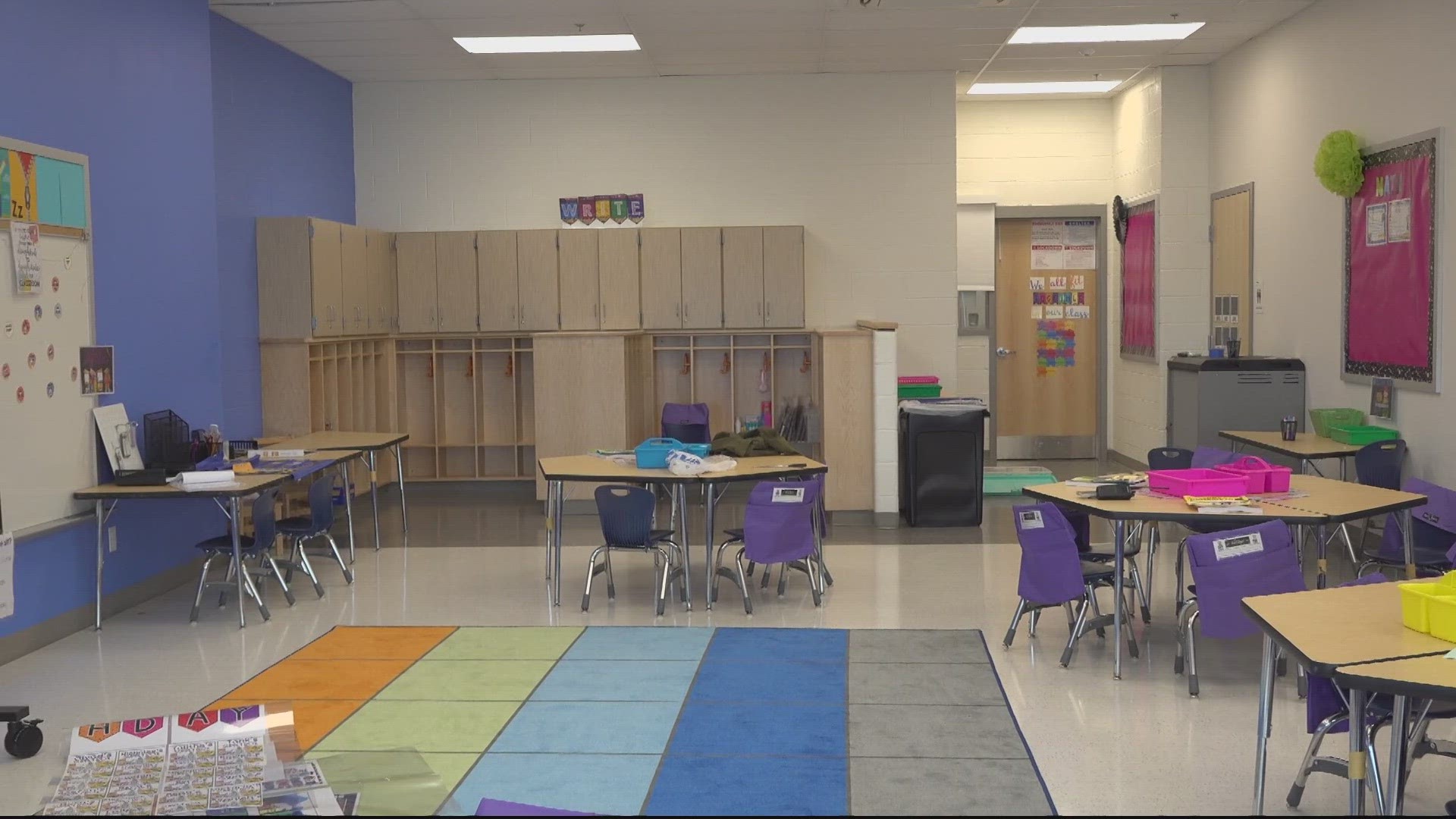CLARKSBURG, Md. — Montgomery County students went back to class this week with a new approach to reading.
It sounds so nuanced that it might, at first glance, not appear to be a huge difference. But, educators said it offers a fundamental change to how we teach students to read.
Inside the brand new Cabin Branch Elementary school the classrooms look back to normal following the pandemic. No more socially distanced desks or virtual learning. But, something is still off. The reading levels for younger students.
“Our students were greatly affected by the lack of in person instruction,” Cabin Branch reading specialist Lindsey Wilkes said.
This is a problem that is not unique to Montgomery County. Literacy rates across the country dropped during the pandemic -- especially among elementary age students.
The latest study from the Maryland State Department of Education shows 69% of Maryland students in fourth grade performed at or below the basic level of reading proficiency.
“Coming back (from the pandemic) we really wanted to tackle that area,” Melaika Brown, one of Montgomery County’s supervisors for language arts, said.
Brown explained there’s a new approach the schools district uses it follows the 'Science of Reading'. This is a style of teaching based on neurological studies that explained how our brains best learn to read.
“Research says kids need strong systematic instruction,” she explained.
What does that mean?
The new approach emphasizes fluency, phonics and awareness, among other new teaching styles.
Lindsay Wilkes broke down one of the core elements simply. In the old style, teachers taught words memorization.
“(This) is a sounds first approach to reading,” she explained. “So we do sounds, then words.”
Does it work?
Montgomery County superintendent Dr. Monifa McKnight said since its first implementation last year the county’s kindergartners saw reading levels increased greatly. They also saw strides in first and second grade students.
“This is exactly what we needed following the pandemic knowing this foundation is critical for our students,” Dr. McKnight said.
This year the county will advance the 'Science of Reading'. Over the summer more than 4,000 elementary school educators received instruction in the new approach.
A new way to read as Maryland’s largest school district tries to battle back against pandemic learning loss.

